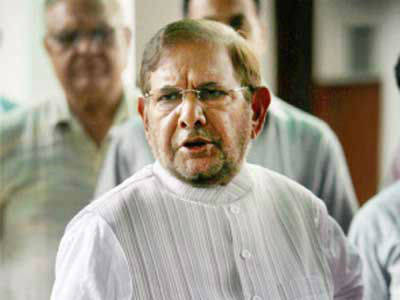New Delhi, Sept 2: Opposing any move to shut petrol pumps during night, JD(U) today hit out at the UPA government, saying its reign is akin to that of medieval Indian ruler Muhammad-bin-Tughlaq, known for his impractical schemes.
"It is like Tughlak's rule. We had heard about Tughlaq's style of functioning. Now we are witnessing the same," JD(U) president Sharad Yadav said outside Parliament while reacting to suggestions on closing down petrol pumps during night to save fuel and foreign exchange.
"Instead of withdrawing subsidies on diesel vehicles, gensets at hotels and palaces, you are trying close down petrol pumps," Yadav said.
Asked what his party plans to do if the government implements the proposal, he said, "People will decide. In the democracy, voters have power to punish."
Yadav also condemned the disruption of the Lok Sabha and the high-pitch verbal duel between MPs after the suspension of nine members from the House.
"Whatever has happened in the House today is condemnable. We strongly condemn it," the JD(U) leader said.
He, however, said, "They should have been expelled on Friday itself so that today the House could have been saved from disruption."
On Asaram Bapu issue, he said "I wanted Asaram to surrender to the law. It has happened."
He also appreciated media's role for taking up the Asaram issue.
"Media raised the issue and in the process mediamen were attacked by Asaram supporters repeatedly. But despite that media continued to raise the issue. Media's role is commendable and I welcome it," Yadav said.
The Oil Ministry today said there is no proposal under consideration of the government to allow sale of petroleum products from the retail outlets only during certain hours.






Comments
Add new comment